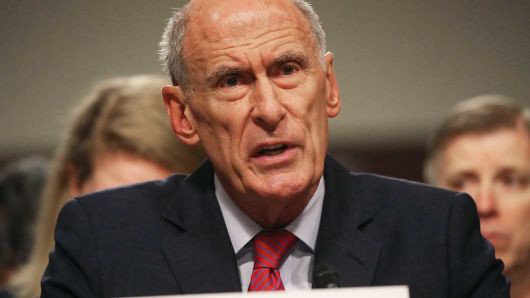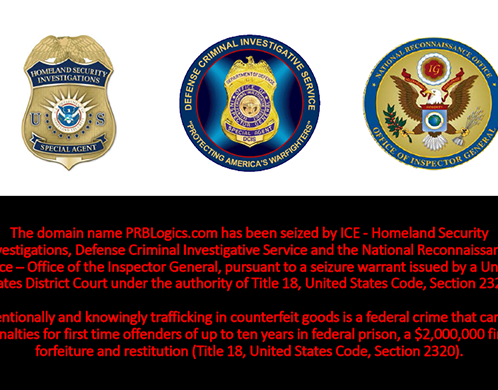By the way, it is not just the Chinese in California, we also have a scandal of the same description in Miami of pregnant Russian women giving birth for US citizenship in Miami.
Any response from Senator Harris or Feinstein? How about Pelosi? Any? Nah….

***

Primer:
An Irvine-based immigration attorney has been sentenced to 21 months in federal prison for obstructing justice in relation to a scheme in which he agreed to help a Chinese national flee from the United States after the woman had been designated as a “material witness” in a criminal investigation into “birthing houses” operating in Southern California.
Ken Zhiyi Liang, 39, of Irvine, was sentenced Monday afternoon by U.S. District Judge Andrew J. Guildford. Liang was found guilty in September of conspiring to obstruct justice, obstructing justice, and tampering with a witness, who is referred to in court papers as “D.L.”
Liang “was caught on hours of video and audio recordings selling and marketing his abilities to D.L. to help smuggle her out of the United States in violation of court orders, in exchange for a $6,000 fee to himself and a $1,500 to $3,000 fee for three co-conspirators who would assist him,” prosecutors wrote in a sentencing brief filed with the court.
SANTA ANA, Calif. – Following the arrests this morning of three defendants who allegedly operated “birth tourism” outfits that catered to Chinese clients, federal authorities today unsealed indictments that charge a total of 19 people linked to three schemes that operated across Southern California and charged clients tens of thousands of dollars to help them give birth in the United States.
The indictments charge operators and clients of three “maternity house” or “birthing house” schemes that were dismantled in March 2015 when federal agents executed 35 search warrants, which resulted from international undercover operations.
The 17 cases unsealed today contain the first-ever federal criminal charges brought against operators and customers of birth tourism businesses. The birth tourism operations not only committed widespread immigration fraud and engaged in international money laundering, they also defrauded property owners when leasing the apartments and houses used in their birth tourism schemes, according to the indictments.
These cases were investigated by U.S. Immigration and Customs Enforcement’s (ICE) Homeland Security Investigations (HSI) Los Angeles. Substantial assistance was provided by IRS Criminal Investigation, as well as the Irvine Police Department and the San Bernardino County Sheriff’s Department.
The indictments describe birth tourism schemes in which foreign nationals, mostly from China, applied for visitor visas to come to the United States and lied about the length of their trips, where they would stay, and the purposes of their trips – which were to come to the U.S. for three months to give birth so their children would receive U.S. birthright citizenship.
According to the indictments that charge the operators of the schemes, they coached their Chinese customers how to pass the U.S. Consulate interview in China by falsely stating that they were going to stay in the U.S. for only two weeks. Their clients were also coached to trick U.S. Customs and Border Protection (CBP) at ports of entry by wearing loose clothing that would conceal their pregnancies. The indictments also allege that the customers were directed to fly to Hawaii from China – instead of directly to Los Angeles – because it was easier to get by CBP in Hawaii. The indictments allege that many of the Chinese birth tourism customers failed to pay all of the medical costs associated with their hospital births, and the debts were referred to collection.
“These cases allege a wide array of criminal schemes that sought to defeat our immigration laws – laws that welcome foreign visitors so long as they are truthful about their intentions when entering the country,” said Nick Hanna, U.S. Attorney for the Central District California. “Statements by the operators of these birthing houses show contempt for the United States, while they were luring clients with the power and prestige of U.S. citizenship for their children. Some of the wealthy clients of these businesses also showed blatant contempt for the U.S. by ignoring court orders directing them to stay in the country to assist with the investigation and by skipping out on their unpaid hospital bills.”
Three indictments returned Wednesday by a federal grand jury charge the operators of large birth tourism operations based in Orange, Los Angeles and San Bernardino counties. Pursuant to this week’s indictments, federal authorities this morning arrested three defendants: Dongyuan Li (李冬媛), 41, of Irvine; Michael Wei Yueh Liu (刘维岳), 53, of Rancho Cucamonga; and Jing Dong (董晶), 42, of Fontana. All three are charged with conspiracy to commit immigration fraud, international money laundering and identity theft. Liu is also charged with filing three false tax returns.
According to the indictments charging the operators, all three businesses touted the benefits of giving birth in the U.S., rather than in China, with claims of the U.S. having “the most attractive nationality”; “better air” and less pollution; “priority for jobs in U.S. government”; superior educational resources, including “free education from junior high school to public high school”; a more stable political situation; and the potential to “receive your senior supplement benefits when you are living overseas.”
The indictment naming Li alleges that she operated an Orange County-based business named You Win USA that advertised its “100-person team” in China and the U.S. had served more than 500 Chinese birth tourism customers. Li allegedly used 20 apartments in Irvine, charged each customer $40,000 to $80,000, and received $3 million in international wire transfers from China in just two years. The indictment details communications in which Li referred to U.S. immigration authorities as “the foreigners” and also discussed whether to refund a down payment because, once the customer found out “the baby is a girl, her husband arranged abortion for her.”
“Receiving a tourist visa from the United States Government is a privilege, not a right,” stated IRS Criminal Investigation Acting Special Agent in Charge Bryant Jackson. “The indictments announced today confirm IRS Criminal Investigation’s commitment to following the money – from China to the United States – to help identify the promoters of this alleged illegal international birth tourism scheme. Using cash, fabricated financial documents, and nominee names for the transfer of money from China to the U.S., the promoters attempted to further their lucrative birth tourism enterprise.”
(The investigation into Li’s operation led to another investigation, which resulted in criminal charges against the 20th person to be charged in this matter. Attorney Ken Zhuyin Liang was sentenced to 21 months in federal prison for helping material witnesses flee to China in violation of court orders.)
Another indictment filed this week charges Wen Rui Deng (邓文瑞), 65, a former Irvine resident who is believed to now be in China, with operating Star Baby Care, a Los Angeles County-based operation that is believed to have been the largest birth tourism scheme in the U.S. On its websites, Star Baby Care boasted that it was founded in 1999 as the “number one designated maternity service to the pregnant mother from China, Hong Kong, and Taiwan,” and had “provided services to 8,000 pregnant women (4,000 from China) since we established.” The indictment alleges that Deng’s scheme used 30 apartments in Rowland Heights and 10 properties in Irvine, including some houses. Deng’s scheme served many customers alleged to be Chinese officials, including some associated with Chinese Central Television, China Telecom, Bank of China, and two local taxation bureaus.
In the third indictment filed this week, Liu and Dong are accused of operating USA Happy Baby Inc., a San Bernardino County-based company that charged “VIP” customers as much as $100,000. Using apartments in Rancho Cucamonga and Irvine, USA Happy Baby allegedly also served Chinese officials, including people associated with the Henan People’s Radio Station in Zhengzhou, the Public Security Bureau in the Beijing Municipal Government, and the Harbin Medical University in Heilongjiang Province. Liu and USA Happy Baby are also charged with filing false tax returns that failed to report more than $1.9 million received over three years. The indictment also alleges that Liu and Dong used 14 different bank accounts to receive more than $3.4 million in international wire transfers from China during 2013 and 2014 alone.
There are 16 fugitive defendants whose indictments were unsealed today include. They are:
- Qiang Yan (闫强), 42, who is Dongyuan Li’s husband, was indicted in December 2018 on three counts of visa fraud for filing an application for an “O” visa premised upon being an “alien of extraordinary ability,” which falsely claimed that he had co-authored two books and attached fake copies of those books. The indictment naming his wife notes that when Yan was interviewed during a search of Li’s multi-million-dollar residence in Irvine, he told the federal agents that his birth tourism business investment was “chump change,” because he had more than $10 million in his bank accounts in China.
- Xiao Yan Liu (刘小燕), 39, who was indicted in November 2018 for two counts of visa fraud and one count of lying to federal law enforcement. According to her visa application, she was the “Chief Physician” at the Henan Shangqiu Power Supply Company Staff Hospital.
- Jun Xiao (肖俊), 30, and LongJing Yi (易珑静), 30, who were indicted in February 2018 on charges of conspiracy, visa fraud, obstruction of justice, and criminal contempt. According to their indictment, Xiao and Yi made false statements on their visa applications, namely that they would be staying in the United States for only 15 days. According to court documents in their case, Xiao and Yi paid only $4,600 of the $32,291 in hospital charges related to the birth of their baby. The indictments detail communications from Xiao after he had fled to China, where he continued to denigrate the Court’s Order requiring him to stay in the U.S.: “Anyway, I’m already home. U.S. can’t do anything to me.”
- Dongjiang He (贺东江), 46, was indicted in February 2018 for fleeing with his wife to China, in violation of a federal court order. On his visa application, He listed his occupation as “Government” and his position as “Project Manager and Secretary General” for the China Nonferrous Metals Techno Economic Research Institute, which is located in the Haidian District in Beijing. He’s wife, Zhichan Yu (余芝婵), 40, also was indicted in February 2018 on charges of visa fraud, obstruction of justice, and contempt of court after fleeing to China in violation of a federal court order.
- Jia Luo (罗佳), 30, was indicted in February 2018 for fleeing to China in violation of a federal court order. According to court documents, Luo lied on her visa application and lied to U.S. Customs officers in Hawaii when asked her if she was planning on having a baby in the United States.
- Renlong Chen (陈人龙), 34, and his wife Wei Wang (王伟), 33, were indicted in February 2018 for fleeing to China, in violation of federal court orders. Chen and Wang are accused of making false statements on their visa applications by stating they would be visiting the United States for only eight days, when they actually made arrangements to stay at a maternity house in Rancho Cucamonga for three months so that Wang could give birth in the United States.
- Jie He (何洁), 29, was indicted in February 2018 for fleeing to China in violation of federal court order. He allegedly made false statements on her visa application, including that she planned to stay in the United States for only 20 days, when she actually entered into a contract to pay approximately $50,000 to obtain a visa and stay in the United States for several months to give birth. According to court documents, Jie He told HSI special agents that she flew into Las Vegas, rather than Los Angeles, because the Chinese maternity operator had advised her that it was easier to enter through Las Vegas.
- Eryun Zhang (张尔芸), 25; her husband, Liang Ni (倪梁), 25; and her mother, Ji Xu (徐激), 50, were indicted in February 2018 for fleeing to China in violation of federal court orders. According to court documents, Ni admitted that, during an interview conducted at the U.S. Consulate in China, he falsely stated that the purpose of their trip was for their honeymoon, rather than the true reason for Zhang to give birth in the United States.
- Chao Chen (陈超), 34, a partner in the You Win USA scheme, was indicted in December 2018 with one count of contempt of court for fleeing the U.S. while he was pending sentencing. Chen previously pleaded guilty to visa fraud, marriage fraud and tax fraud.
- Ji Zhu (朱洁), 31, who was indicted in March 2018 for one count of marriage fraud, for allegedly marrying a U.S. citizen to obtain U.S. citizenship, even though she really was married to Chao Chen. Zhu fled to China with Chao Chen, where they remain fugitives from justice.
An indictment contains allegations that a defendant has committed a crime. Every defendant is presumed innocent until and unless proven guilty beyond a reasonable doubt.
The three defendants arrested this morning are expected to be arraigned on the indictments this afternoon in U.S. District Court in Santa Ana.
HSI’s investigation into Dongyuan Li’s You Win USA scheme has resulted in seizure and/or forfeiture proceedings against three real properties with millions of dollars in equity, including her $2.1 million residence in Irvine; six vehicles, including four Mercedes Benz vehicles; more than $1 million from bank accounts; and many gold bars and coins.







